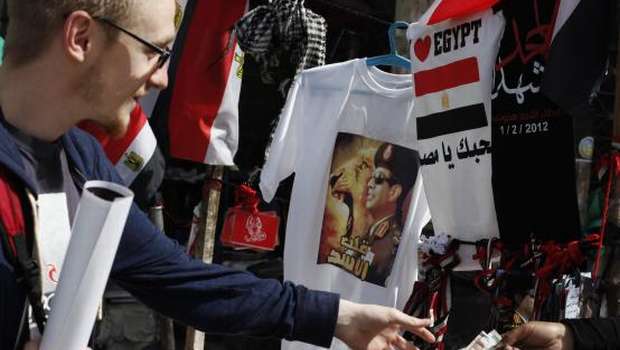The cultural factors that govern a society’s political and social spheres play significant roles in determining its fate, which is why Egyptians called for an end to reactionary attitudes in the regime following January 25, 2011. For, as much as we seek change, we also strive to adopt a very important notion—namely, the preservation of social ties across the community. We hope to maintain these bonds in order to build a civil state, an important part of Egypt’s heritage.
Taking an example from history, at the beginning of Napoleon’s campaign in the late 1790s, Egyptians came together out of fear that the French would divide Egypt into a number of small states, as they had done in several other countries. Omar Makram was one of the revolutionary leaders who called for unity in the fight against the French. After the Egyptians’ battles were over, Omar Makram realized that his role as leader had ended. However, several others demanded that he continue in this capacity to consolidate the pillars of the modern state. He decided to hand over the reins of power to the military commander Muhammad Ali Pasha, so that he could revive Egyptian society and place Egypt on the path to a more prominent international position.
I have provided this simple background to demonstrate how interconnected political life and the military establishment have always been in Egypt.
Undoubtedly, the next president will be faced with many issues: the struggling economy, factional demands, an energy crisis, and ever-accumulating domestic and foreign debts, among others. However, the biggest issue is that the Egyptian people are exhausted from three years of revolution and have, therefore, lost hope. They are now looking for a savior.
Everyone knows how large a burden will fall on the shoulders of the next president. Some expect him to fail and some hope for him to succeed, while others will work to depose him. The only certainty is that no one in Egypt—not even the military establishment itself with Sisi at its helm—can bear this burden and solve all of Egypt’s problems alone. Thus, there can be no discrimination between the different levels of governance.
Add to these problems the fact that, save the Muslim Brotherhood, there is no powerful entity or system within Egyptian society that reaches all corners of Egypt or possesses deep societal roots. That is to say nothing of the utter failure of Egyptian political parties. In short, for any future civilian president, the growing cadres of his followers would not be enough to handle the responsibility of an entire state, from the ministries and the provinces to the various agencies and authorities. Therefore, all potential presidential candidates from the political parties are equally incapable of running the country single-handedly.
As for the biggest challenge, it lies within the state apparatus itself and especially in the security and intelligence services, which are emerging from a bitter experience with the Muslim Brotherhood and, therefore, have already lost any confidence in a state led by the political parties. They are now operating in a state of uncertainty and alarm. So, how would a potential civilian leader, completely unaware of anything to do with these services, their premises or personnel, interact with them, let alone command them according to his politics?
Of course, the military—and Sisi at its head—remains the strongest player on the Egyptian political scene. Even if the future government were led by civilians, the military would still be a key driver behind whatever happens. Future leaders will have no choice but to cooperate fully with the military establishment because, in some cases, they would not have the authority to make decisions. For example, they would not be able to determine matters related to foreign affairs, national security or military armament, even though the elected president would likely not take a stance on these issues that the revolutionary civil masses would consider overly ambiguous or displeasing. Like it or not, this is today’s reality. We ought to accept it and even take advantage of it where possible.
The responsibility is a very precarious one and the chance of failure is much greater than the chance of success. Yet, I would argue that there are several solutions, the potential of which depend on an important equation. It is in the interest of the military establishment that Egypt reach a state of stability and undergo the first stages of reviving its economy, which has been stalled for three years. It is also in the military’s interest to end its conflict with political Islam and to redirect its energies towards another target. This would rule out the risk that other countries have faced, especially in cases where military institutions have emerged independent of the ruling establishment.
In light of international and regional conflicts, division of responsibility is desirable. Specifically, responsibility should be divided between civil actors and other national parties so that military and intelligence institutions can focus on rebuilding their capabilities and putting their internal affairs in order. This way, the military would not bear sole responsibility for addressing poverty and several other issues.
The mission that the next president can undertake for Egypt would be to allow political parties, and political life in general, an opportunity to operate freely. This would require that the security apparatus not intervene in an attempt to control, sabotage or restrain these parties’ powers. Instead, the president should aid parties in their efforts to grow, build up a following and establish themselves as part of society. In so doing, a sound political party environment, previously missing in Egypt, would be created. Party activism would become the basis for building a truly democratic system and the cornerstone in combating extremism. Finally, political cadres affiliated with Egyptian society would take on the responsibility of running the entire state.
The counterpoint to this piece can be read here.
